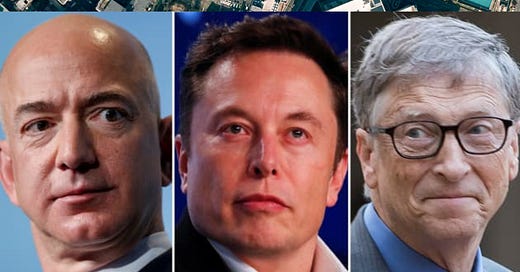Big tech jumps in Carbon capture & reforestation. Have you applied to join Atlas Society yet?
The richest tech people are obsessed with climate change. Apple launch $200m fund for reforestation. Facebook become Carbon Negative. A Oil company become 100% Carbon Neutral by buying carbon credits.
Hi, I’m Djoann Fal. I convene The Adaptive Economy by Atlas, a data-driven, positive, and most importantly solution-based business newsletter to help us understand how our lives, societies, and polit…
Keep reading with a 7-day free trial
Subscribe to The Adaptive Economy Newsletter by Atlas Capital to keep reading this post and get 7 days of free access to the full post archives.



